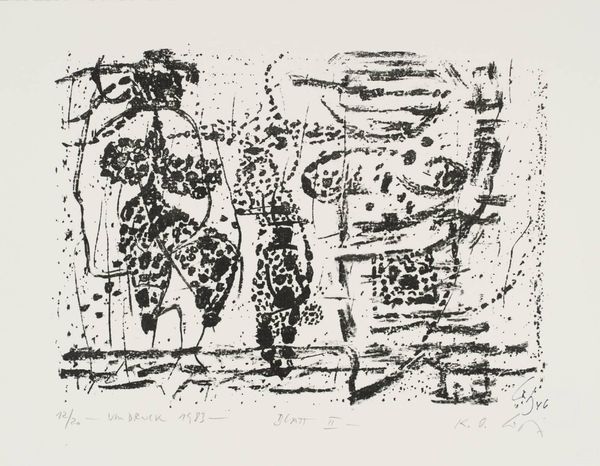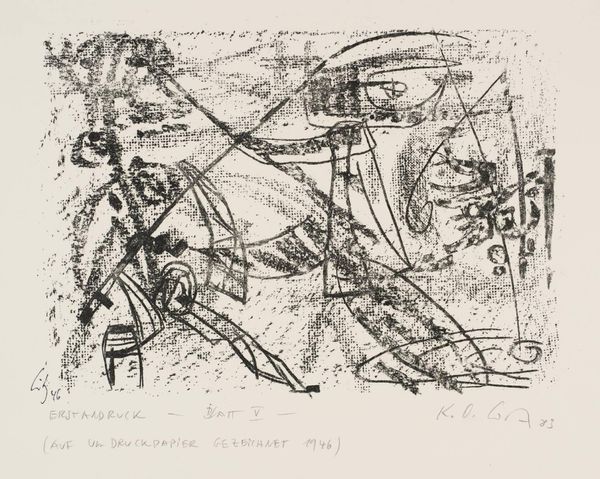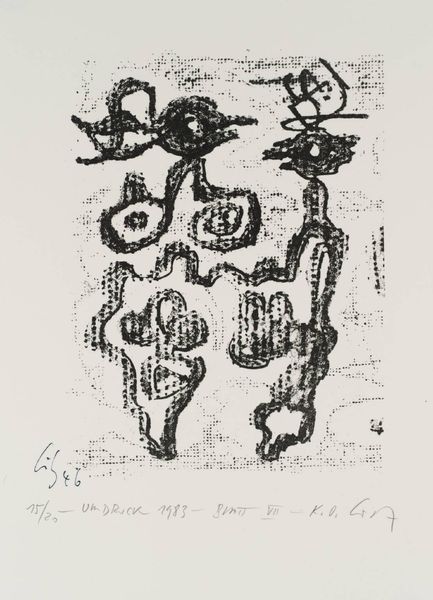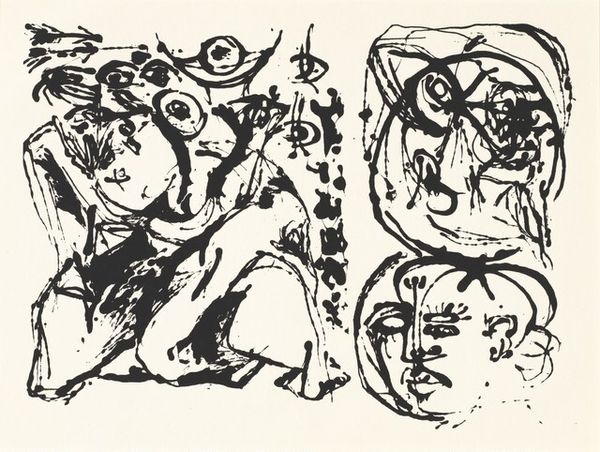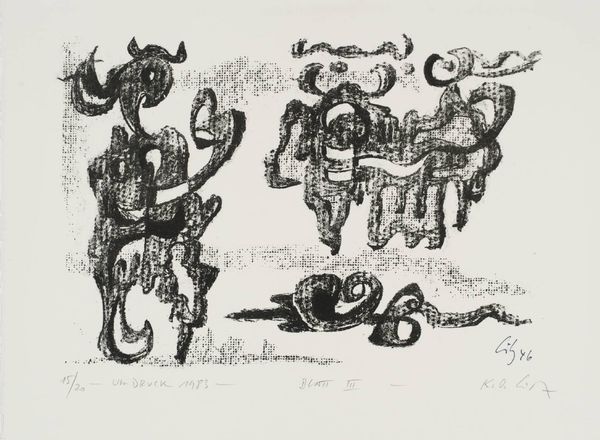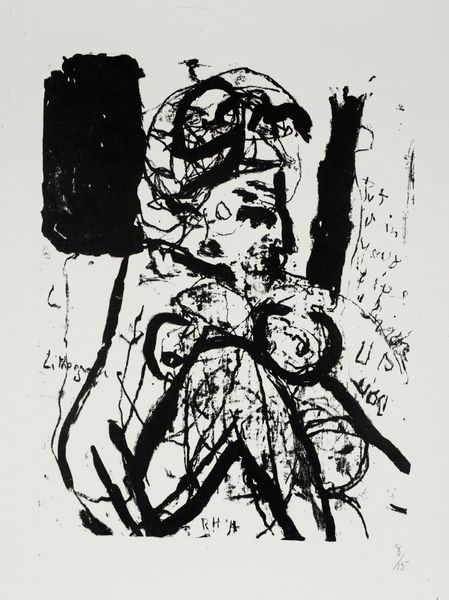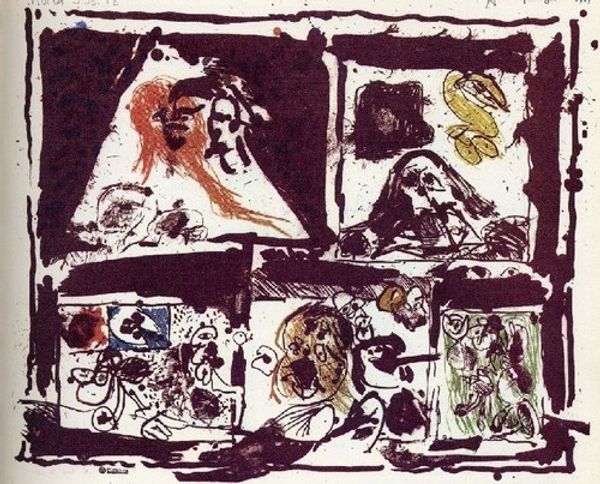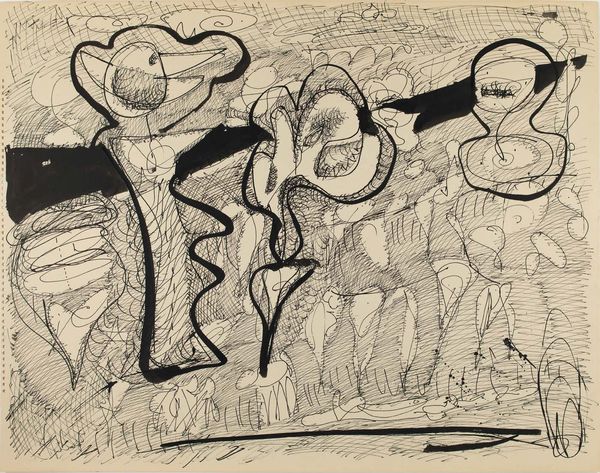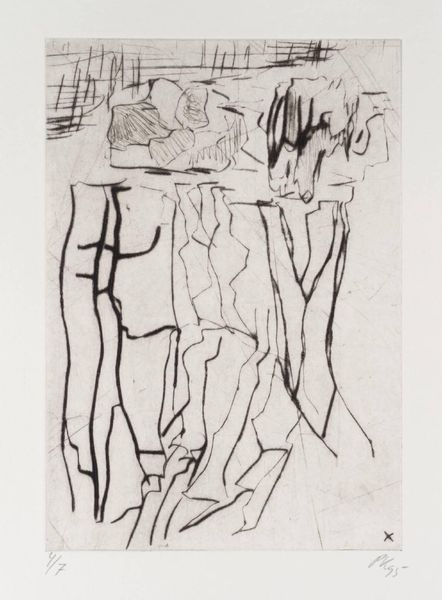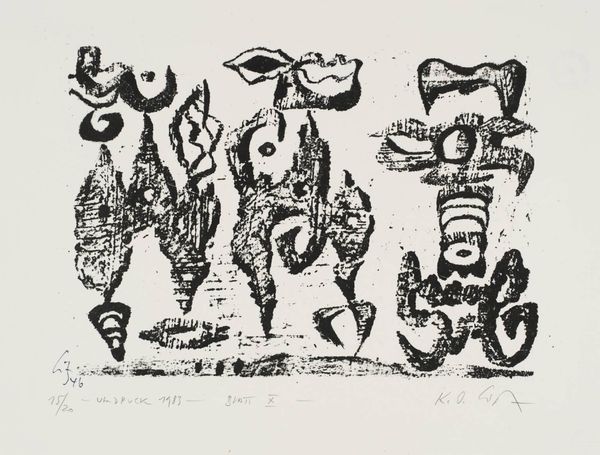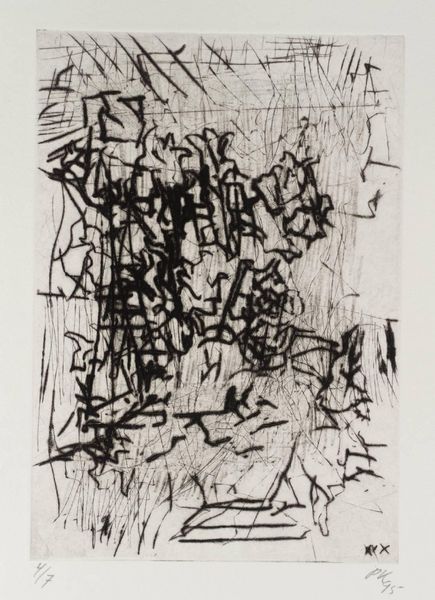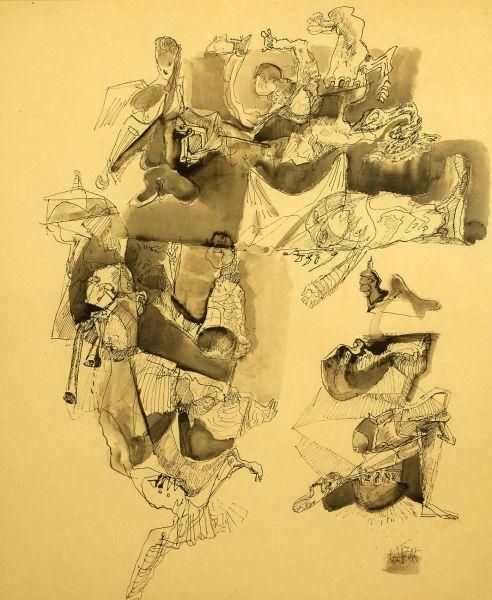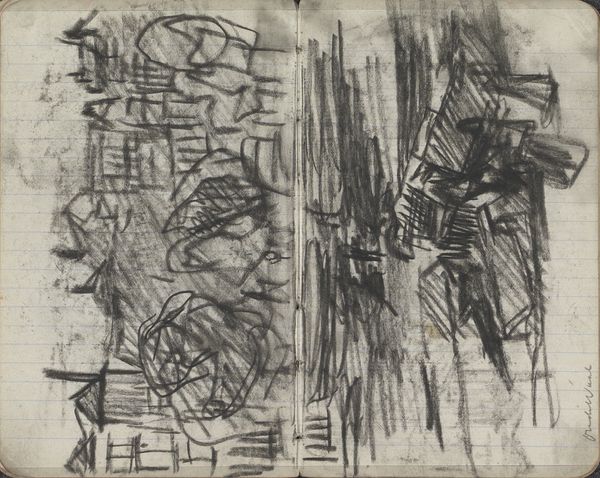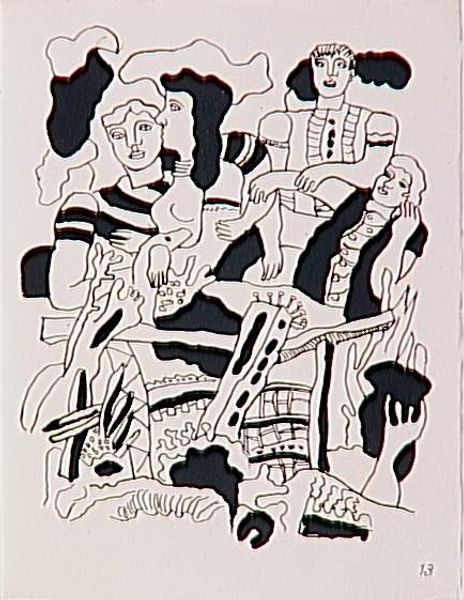![[no title] by Professor Karl-Otto Götz](/_next/image?url=https%3A%2F%2Fd2w8kbdekdi1gv.cloudfront.net%2FeyJidWNrZXQiOiAiYXJ0ZXJhLWltYWdlcy1idWNrZXQiLCAia2V5IjogImFydHdvcmtzLzk1YjcwMzUzLTc1MjYtNDQ1My1hYmE5LWRiMjdhN2FiZmIxMS85NWI3MDM1My03NTI2LTQ0NTMtYWJhOS1kYjI3YTdhYmZiMTFfZnVsbC5qcGciLCAiZWRpdHMiOiB7InJlc2l6ZSI6IHsid2lkdGgiOiAxOTIwLCAiaGVpZ2h0IjogMTkyMCwgImZpdCI6ICJpbnNpZGUifX19&w=3840&q=75)
Dimensions: image: 230 x 320 mm
Copyright: © Karl-Otto Götz | CC-BY-NC-ND 4.0 DEED, Photo: Tate
Curator: Looking at this print by Professor Karl-Otto Götz, created in 1946, one immediately observes a network of lines and shapes rendered in stark black ink. Editor: It feels like a dance, or maybe a deconstruction. The shapes are so angular and jagged, yet they have a kind of rhythm. Curator: The process here is key; it's a print, likely a lithograph given the date and the paper, allowing for the replication of these spontaneous-looking marks. Think of the artist's hand, the pressure, the transfer. Editor: Exactly! And the texture, that slight graininess, it gives the piece a raw, almost urgent energy. It’s as if Götz was trying to capture a fleeting thought. It's like the art itself is materializing right before our eyes. Curator: Well, considering it was made shortly after the war, the fractured forms might reflect the shattered state of Europe, questioning established modes of representation. Editor: I see that. But I also feel the freedom in it, the act of breaking things down to build something new. It’s not just about destruction, but about potential. Curator: Indeed. It reveals how materials and techniques can convey powerful social and personal narratives. Editor: Exactly. Sometimes the most powerful statements are the ones that aren't immediately obvious. This piece keeps whispering different possibilities.
